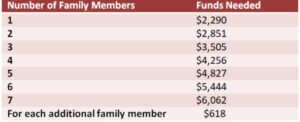- Winny Immigration and Education Services Ltd
- inquiry@winnyimmigration.com

Canada’s Immigration Minister Sean Fraser has indicated that the Rural and Northern Immigration Pilot (RNIP) program could continue in some form or become a permanent immigration program after its end date in August 2024. Launched during the pandemic, the RNIP aims to recruit skilled immigrants to work in smaller communities with aging populations and labor shortages.
Through the RNIP, immigrants can settle in smaller communities, which boosts local economies, creates jobs, and provides communities with the skills they need to thrive. The program targets labor shortages in small and remote communities across Canada to encourage economic growth by welcoming skilled workers who can contribute to local businesses, boost population growth, and create jobs.
Despite the challenges posed by the pandemic, the RNIP welcomed 390 new permanent residents in 2021 and more than tripled to hit 1,360 new permanent residents in 2022. In January 2023 alone, the program welcomed 510 new permanent residents, and if this level of arrivals continues throughout the rest of 2023, it would mean the arrival of 6,120 immigrants through the program this year, more than four times as many as last year.
The RNIP program requires candidates to meet both federal and community eligibility requirements. Currently, there are 11 participating communities in the pilot program, and communities must have a population of 50,000 or less, be located at least 75km from the core of a census metropolitan area, or have a population of up to 200,000 people and be considered remote from other larger cities, according to the Statistics Canada Remoteness Index.
To participate in the Rural and Northern Immigration Pilot program, candidates must meet specific eligibility criteria set by both the federal government and the participating communities. The federal eligibility requirements for the program include having relevant work experience or being exempt as an international student.
To be eligible for the RNIP, you are required to have at least one year of full or part-time work experience within the last three years. This work experience should align with the main and essential duties specified in the National Occupational Classification (NOC), but it need not be continuous or with the same employer. Unpaid and self-employed hours are not considered work experience for the purposes of the RNIP eligibility criteria.
If you are an international student, you are not required to have work experience to be eligible for the RNIP. However, you must have obtained a master’s or doctoral degree, or have completed a post-secondary program of at least two years in the recommended community.
You should have been studying as a full-time student for the full duration of two or more years, completed your studies within the 18 months preceding your application for permanent residence, and spent at least 16 months of the last 24 months studying in the recommended community to obtain the credential.
If you have graduated with a higher degree, you are also exempt from needing work experience, provided you studied full-time in the recommended community for the entire duration of their degree, received the degree no more than 18 months prior to their application for permanent residence, and were in the community for the entirety of their studies.
